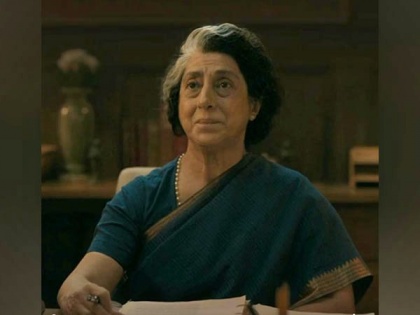How India Handed Over Katchatheevu Control to Sri Lanka in 1974, Shows RTI Reply
By Lokmat English Desk | Published: March 31, 2024 09:52 AM2024-03-31T09:52:56+5:302024-03-31T09:55:54+5:30
In 1974, India decided to cede control of Katchatheevu, a strategically significant island located in the Palk Strait, to ...

How India Handed Over Katchatheevu Control to Sri Lanka in 1974, Shows RTI Reply
In 1974, India decided to cede control of Katchatheevu, a strategically significant island located in the Palk Strait, to Sri Lanka. The handover was formalised through the Indo-Sri Lankan Agreement signed by the then Prime Minister of India, Indira Gandhi, and the then Prime Minister of Sri Lanka, Sirimavo Bandaranaike, to take centre stage in the Lok Sabha campaign in Tamil Nadu.
The official documents and records of Parliament show how a vacillating India lost the battle for control of the island in Palk Strait to a smaller country determined to wrest it. The RTI filed by the Tamil Nadu BJP chief K Annamalai.
The documents show Sri Lanka making up for its lack of size with tenacious pursuit of the 1.9 square km of land about 20km from the Indian shore based on claims that New Delhi contested for decades only to acquiesce to finally. Sri Lanka, then Ceylon, pressed its claim right after Independence, when it said Indian Navy (then Royal Indian Navy) could not conduct exercises on the island without its permission. In Oct 1955, Ceylon Air Force held its exercise on the island. Its stance was reflected in a minute by first PM Jawaharlal Nehru on May 10, 1961, who dismissed the issue as inconsequential.
I attach no importance at all to this little island and I would have no hesitation in giving up our claims to it. I do not like this pending indefinitely and being raised again in Parliament, Nehru wrote.
Nehru's minute is part of a note prepared by then commonwealth secretary Y D Gundevia, and which the ministry of external affairs (MEA) shared as a backgrounder with the informal Consultative Committee of Parliament in 1968.
The backgrounder is revealing in terms of the indecision that marked India's response until 1974, when it formally gave up its claim altogether. "The legal aspects of the question are highly complex. The question has been considered in some detail in this ministry. No clear conclusions can be drawn as to the strength of either India's or Ceylon's claim to sovereignty," the ministry said.
This, despite the opinion of the then attorney general M C Setalvad, in 1960, that India had a stronger claim on the island formed by a volcanic eruption. "The matter is by no means clear or free from difficulty but on the assessment of the whole evidence it appears to me that the balance lies in concluding that the sovereignty of India was and is in India," wrote the well-regarded law officer in a clear reference to the zamindari rights given by the East India Company to Raja of Ramnad (Ramnathpuram) over the islet and fishery and other resources around it.
The rights enjoyed "continuously and uninterruptedly" from 1875 to 1948, which got vested in the State of Madras after the abolition of zamindari rights, were exercised by the Raja independently, without having to pay tributes or taxes to Colombo.
The documents show that MEA's own joint secretary (law and treaties) K Krishna Rao was not sure, but concluded that India had a good legal case which could be leveraged for securing fishing rights - the cause for the continuing ordeal of hundreds of Indian fishermen who are detained by Sri Lankan Navy, around the island.
While observing that Colombo's claims are more "substantial", in 1960, Rao wrote: "On the other hand, it may be noted that India has a good legal case, which could be argued with considerable force. I am not suggesting that we have no case at all."
Even Gundevia, who did not consider the uninhabited island, with only a church on it, to be "really important", was against taking the risk of having to give it up, the MEA told the consultative committee in 1968.
Open in app